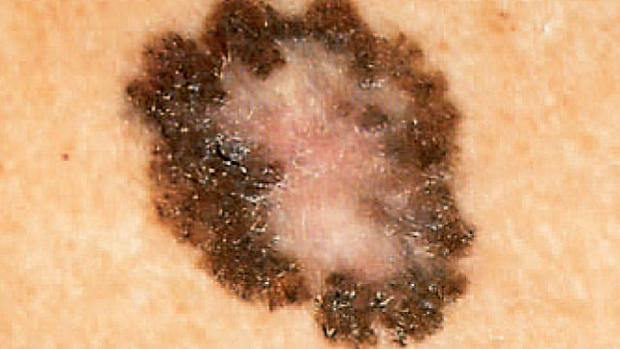FDA proposes tanning bed ban for children under 18
Indoor tanning for children under age 18 would be banned under a proposal made by the Food and Drug Administration Friday. The agency's aim is to reduce skin cancer linked to tanning beds.
The FDA also wants to require tanning bed users to sign consent forms acknowledging the risks of the radiation-emitting devices. Tanning salons and other businesses would have to collect the forms from customers before their first tanning session and every six months thereafter.
The announcement follows years of prodding by dermatologists and medical groups for bolder action on indoor tanning, citing rising rates of skin cancer among teens and people in their twenties, especially women. The leading professional group for skin doctors applauded the news.
"Restricting teens' access to indoor tanning and educating all users about the dangers of tanning devices are critical steps to preventing skin cancer," said Dr. Mark Lebwohl, president of the American Academy of Dermatology, in a statement.
Twenty-three states already have laws banning minors from using indoor tanning equipment.
Last year, the FDA required tanning beds and sun lamps to carry new warnings advising that they should not be used by anyone under age 18.
The FDA has regulated tanning machines for over 30 years, but had previously taken little action to restrict their use.
"Despite available information about its adverse effects, many high schoolers continue to use indoor tanning devices," FDA's Dr. Vasum Peiris told reporters. "Now we're taking further steps."
The FDA would be able to seize machines and fine businesses that don't follow the rules, if they are finalized, said Peiris, a chief medical officer in the agency's device center.
Representatives for the Indoor Tanning Association, which represents makers of tanning beds and other products, did not respond to requests for comment Friday morning.
The American Academy of Pediatrics backed the FDA's proposal as well.
AAP president Dr. Sandra Hassink, said, "There is no safe level of tanning bed use for young people."
AAP's 2011 policy statement on UV radiation exposure called for strong policies to eliminate the use of tanning beds by children under 18. Hassink said, "Today, the FDA turned AAP policy into action. Children will be safer and healthier for it."
She said tanning beds are designed to directly expose the skin to radiation in amounts several times greater than that provided by natural sunlight.
"Studies show that beginning tanning before age 35 can increase the risk of developing melanoma, the most deadly form of skin cancer, by 75 percent. Alarmingly, the earlier a teen begins to tan indoors, the more hours of UV exposure he or she will accumulate over a lifetime, increasing the chances of developing melanoma and other skin cancers," Hassink said.
Nearly 74,000 new cases of melanoma, the deadliest form of skin cancer, are expected to be diagnosed this year, and the disease is expected to cause nearly 10,000 deaths, according to the American Cancer Society.
While most cases are diagnosed in people in their 40s and 50s, the disease is linked to sun exposure at a young age. People who use indoor tanning equipment face a 59 percent higher risk of melanoma than those who do not, according to the American Academy of Dermatology.
About 1.6 million U.S. teenagers tan indoors each year at more than 33,000 tanning salons, gyms, spas and other facilities that offer sun lamps and tanning beds, according to figures cited by the FDA.
The FDA will take public comments on its proposal for 90 days before beginning work on finalizing them.
A second proposal from the agency would require manufacturers of tanning equipment to make additional changes to their machines, including the use of bolder, easier-to-read warnings and mandating an emergency shut-off switch.
